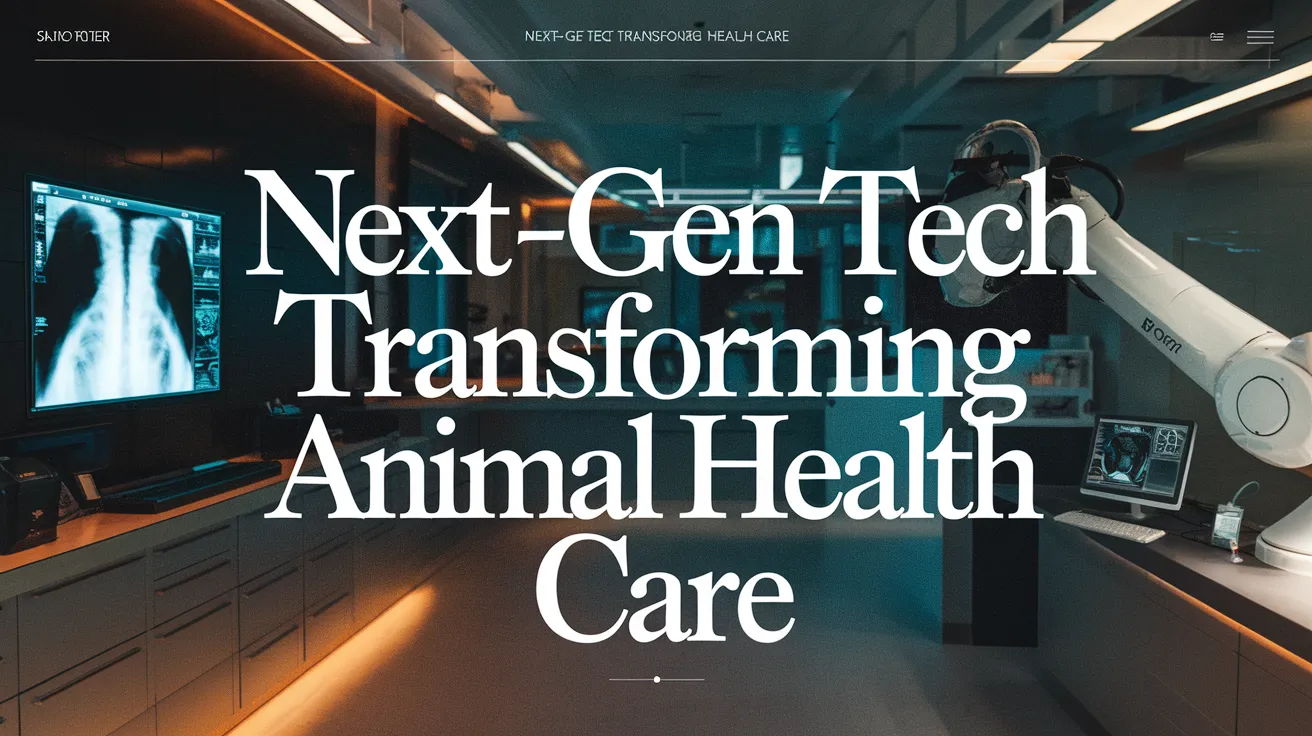Next-Gen Tech Transforming Animal Health Care

In today’s fast-moving tech world, a constellation of disruptive technologies is ushering in a digital revolution in animal health care. These innovations are transforming how animals are cared for, ranging from artificial intelligence (AI) designed for predictive diagnostics to Internet of Things (IoT)-based wearable devices that monitor pets in real-time, and telemedicine that facilitates remote consultations.
Notably, human organoid technology is being utilized alongside robotics and blockchain to improve surgical precision and ensure data transparency. At the forefront of these breakthroughs is Appinventiv, a custom health care software development company, which creates tailored solutions for incorporating these advanced technologies into user-friendly formats.
The advent of wearable devices is particularly impactful in animal health discussions, permitting early diagnosis and smarter treatment protocols that enhance the overall mobility and well-being of animals. Whether monitoring dairy cows in smart farms or caring for domestic pets, technology and AI are revolutionizing how veterinarians, researchers, farmers, and pet owners engage with animal health.
AI: More Accurate Predictive Care and Diagnosis
AI drives numerous innovations in animal health care by analyzing complex data patterns from diagnostic images, genetic information, and behavioral data through advanced machine learning algorithms.
For instance, these AI algorithms have been shown to outperform human specialists in interpreting imaging results such as x-rays and CT scans, enabling rapid identification of fractures, tumors, and organ anomalies. In livestock management, AI applications are also pivotal, predicting disease outbreaks, thereby allowing timely intervention.
AI-powered chatbots and virtual assistants have also found their place in veterinary clinics, providing triage services, managing appointment schedules, and delivering basic medical guidance to pet owners.
IoT Technology in Animal Health
Imagine a pet collar capable of alerting owners to signs of stress or illness. IoT technology makes this a reality through wearable devices that continuously monitor vital signs and alert veterinarians or owners in the event of a health issue.
Smart cattle ear tags and wearables also facilitate herd health monitoring, helping farmers optimize feeding strategies, fertility cycles, and disease management. Moreover, specialized sensors can track environmental conditions, such as temperature and humidity in barns, to ensure optimal living conditions for farm animals.
Telemedicine: Veterinary Care Without Borders
Much like how telemedicine transformed human healthcare during the COVID-19 pandemic, the same concept is reshaping how veterinarians engage with patients. Clients can now easily schedule video consultations with veterinarians to receive expert advice for minor concerns, postoperative care, or obtain second opinions.
Dedicated health care apps offer around-the-clock support, assisting pet owners in determining whether an urgent visit to the vet is necessary.
Genomics and Precision Medicine
Advancements in genomics represent another forward-looking trend, with studies of an animal’s genetic makeup being employed to tailor specific health care solutions. Testing patients with DNA kits can reveal crucial traits such as sensitivities and behavioral tendencies, along with milestones in treatments like stem cell therapy derived from the animal’s own cells.
Drones and Surgical Robots
Robotics in animal health care is now commonplace, with computer-assisted surgeries improving veterinary surgeon skills. Automated systems, including drones, are efficiently monitoring and managing agricultural practices.
Big Data and Predictive Analytics
The wealth of data generated within animal health—from veterinary records to wearables—can be harnessed through big data analytics to provide actionable insights and recognize potential health issues across various species.
Top users of data-driven systems, such as IDEXX, utilize these analyses to send personalized wellness alerts to clients, managing proactive health measures for pets.
Blockchain Technology in Animal Health Records
Given the sensitivity of the information exchanged, blockchain technology is emerging as a secure solution for protecting health records and enhancing food safety throughout the life cycle of animals.
Conclusion: A Smarter, Healthier Future
The convergence of AI, IoT, telemedicine, genomics, and blockchain isn’t merely happening in isolation; it’s creating a synergistic ecosystem transforming the landscape of animal health care. This integration allows quicker, more comprehensive evaluations and interventions tailored for individual animals based on diverse data.
The future of animal health care is bright, with innovative technologies paving the way for improved treatment and care, supporting sustained well-being for animals large and small.